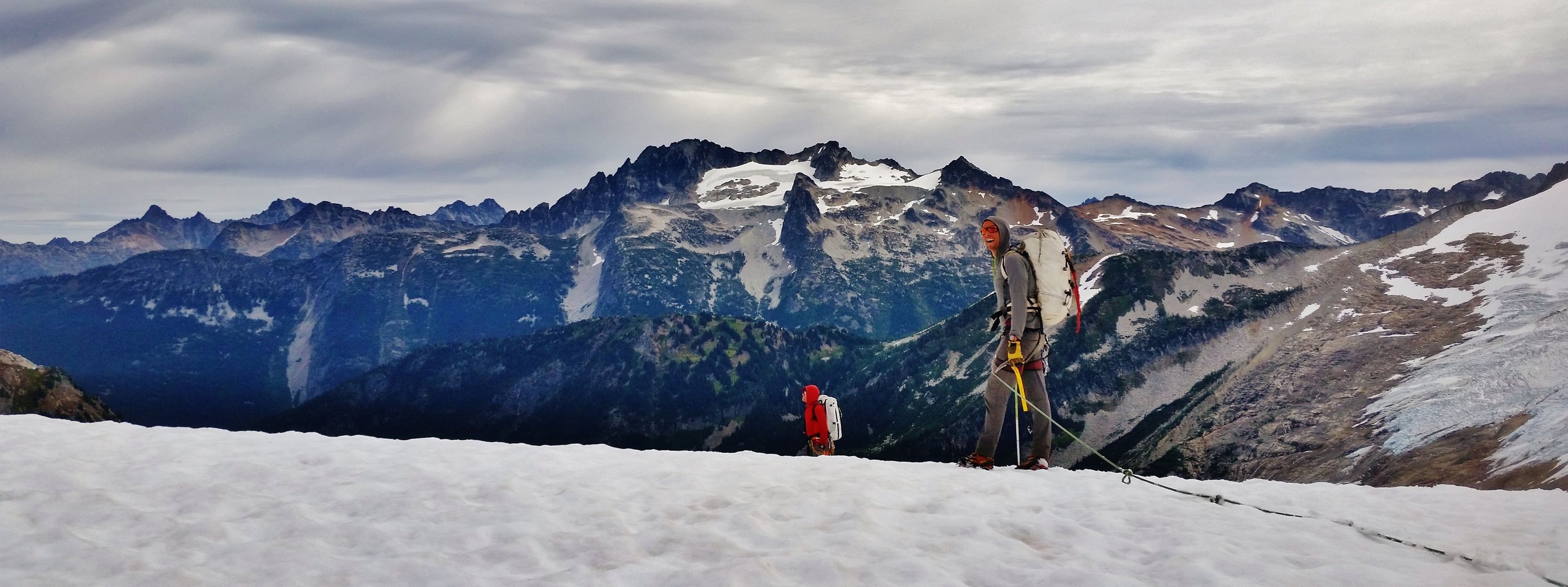In the United States, new climbers are introduced to the sport in a variety of ways. Many climbers learn informally, and for those students climbing is a form of folk craft. Many climbers are self-taught, and these industrious students have more resources now than ever to study, to tinker, and to independently discover. For many students, the formal relationship between a student and a teacher is an ideal learning environment. Students can seek the services of a professional guide or climbing instructor, and for those students a growing population of AMGA certified guides and instructors provide a reliable standard of care. But for many, the costs and availability of professional guides and instructors is prohibitive. For others, the formality of a professional teacher-student relationship does not provide a satisfactory sense of community or belonging.
For these students, America's volunteer instructors await. Volunteer instructors offer their time, their affection, and their mentorship to climbing students. The way they teach and the reasons they teach are fundamentally different than their professional counterparts. The way they manage risk is fundamentally different. The experience their students have is different too.
Incentives Matter
Volunteer instructors are not motivated by profit, wage, or vocation. That means that they rarely perceive their students to be commodities. Instead, they invite their students into a group of peers. As such, volunteers are motivated to teach their students in order to empower a community of peers. In this dynamic, a teacher's informational advantage over a student is not an economic advantage; it is a communal disadvantage. So, volunteers seek to inform and educate their students as efficiently as possible.
This climbing instructor is motivated by climbing, community, and kinship. So, he seeks to eliminate his informational advantage by empowering his student. His student will soon be his climbing partner, not his client.
Similarly, a volunteer instructor often feels an obligation to pass on their expertise to students because they are indebted to the teachers with whom their own journeys began. Such an obligation inculcates a passion for the transference of knowledge and culture, dedication and patience, and an idea that the community cannot achieve it's goals without the assent of the individual student.
Team Risks, Team Management
Volunteer instructors manage risks in a unique way. When students are regarded as part of a collective, the risks they entertain are also collective. That perception reformulates the notion of liability. A teacher should always feel responsibility for the security of a student, but a volunteer instructor typically takes on that responsibility during a student's learning. By extension, a volunteer strives to empower students to be self-reliant, to take personal responsibility for managing risk within the context of teamwork.
Volunteer instructors spend time teaching their students to manage risk as part of a team. The nature of the instructor's liability shifts to the entire climbing team.
The distinction between student and teacher virtually disappears when real risks are being managed on real objectives.
For example, a volunteer instructor who intends to travel across a glacier will spend hours upon days teaching students to recognize crevasses, to climb out of them, and haul each other out of them, to arrest each other in the case of crevasse fall. A volunteer instructor will strive to teach her students these skills thoroughly because she wants her students be fully capable of co-managing crevasse hazards and risks. When the time to travel out on the glacier finally arrives, the nature of the teacher's liability has been redistributed among her teammates. She is not taking responsibility for her students, so much as her team is taking responsibility for the risks they are collectively managing.
Student Agency
Today, students with available resources can hire a professional climbing instructor or guide, they can dictate the terms of their learning, and they vote their approval and satisfaction with what they've learned and the rate at which they've learned it by spending more or less money. However, at the end of that relationship, a student is left to wonder: "Now what?" The most resourceful student may learn rapidly from the most elite cadre of professionals available, but at the end of his journey, he will still need to find a partnership and community within which to practice his craft.
Students that choose to learn within the context of a community from a volunteer instructor may not acquire skills or knowledge as rapidly, but they acquire a team, a community, and a support network immediately.
Where do you want to be when the learning is over?




